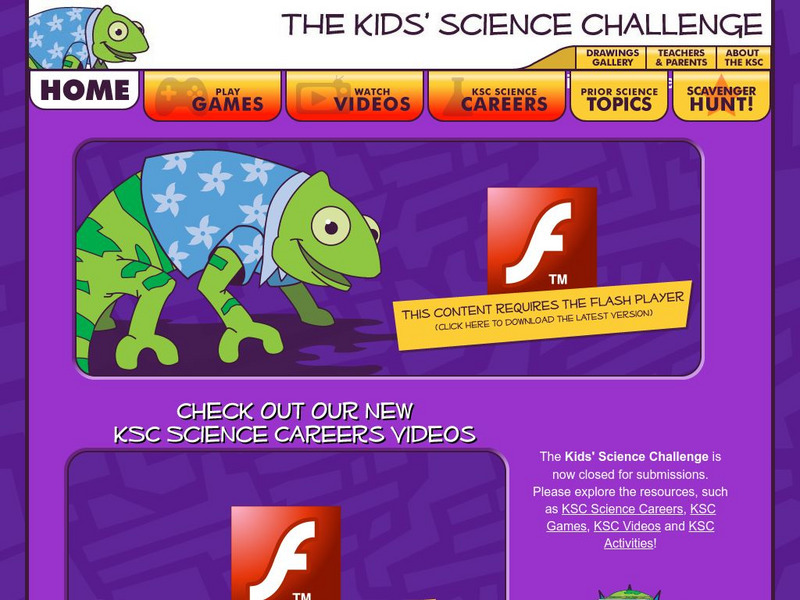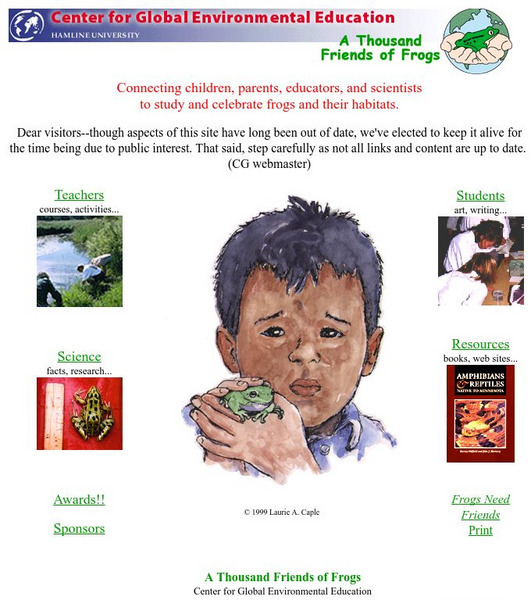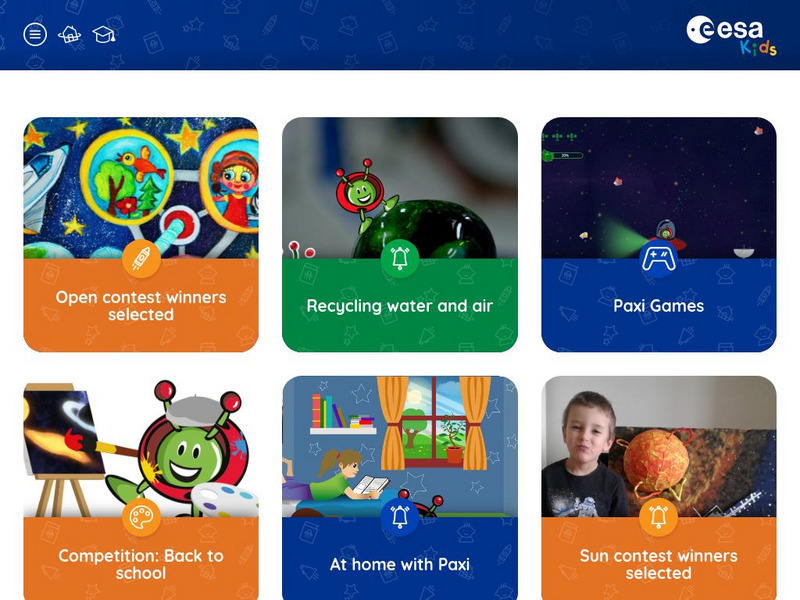Texas State Historical Association
Texas State Historical Association: Science & Health
A collection of articles on science and health topics related to Texas. Includes research using scientific balloons, county health statistics, mineral-water spas, the work of the Southwest Science Institute, science research at...
Other
Kids' Science Challenge: Fun Educational National Competition!
A nationwide annual science competition for elementary and intermediate school students. Winning students are given the opportunity to work with a scientist to help bring their idea to life. Contest prizes include science trips, science...
The Franklin Institute
Franklin Institute and Science Museum: First Flight
Experience the first flight, through words, pictures, and actual quotes from the Wright Brothers about their real life experiences prior to, during, and after the successful flight.
Smithsonian Institution
Smithsonian Learning Lab: Digging Up Dirt: How Paleontologists Bring Dinosaurs Back to Life
Teachers can download this teaching package that introduces students to the science of paleontology. Fossil formulation and details about the work of paleontologists are discussed. Find out how paleontologists discover, stabilize, and...
Ducksters
Ducksters: Science for Kids: Marine or Ocean Biome
Kids learn about the marine biome. The largest biome by far, the oceans cover most of the Earth's surface.
Ducksters
Ducksters: Science for Kids: World Biomes and Ecosystems
Kids learn about the world's biomes and ecosystems. The network of life and biodiversity needed for all to survive.
Ducksters
Ducksters: Science for Kids: Carbon Cycle
Kids learn about the carbon cycle and how this nutrient travels through the ecosystem to sustain life on Earth.
Ducksters
Ducksters: Science for Kids: Coral Reef Biome
Kids learn about the coral reef biome. Much of ocean life lives in this important aquatic ecosystem.
Ducksters
Ducksters: Science for Kids: Nitrogen Cycle
Kids learn about the nitrogen cycle and how this nutrient travels through the ecosystem to sustain life on Earth.
Ducksters
Ducksters: Science for Kids: Oxygen Cycle
Kids learn about the oxygen cycle and how this nutrient travels through the ecosystem to sustain life on Earth.
PBS
Idaho Ptv: Science Trek: Salmon
An excellent and comprehensive resource on salmon. Includes three videos: a half-hour show, a video short, and a short video where an expert answers children's questions. The facts section covers every topic you might think of, including...
Other
Center for Global Environmental Education: A Thousand Friends of Frogs
An in-depth site about the world of frogs. The site includes teacher, student, science, and research sections. There are plenty of facts and activities.
Other
Life Science Connections: Protists
This concise site provides a brief description of the Protist Kingdom. In addition, you will find an explanation of the role of various organelles found in the cell.
Center for Innovation in Engineering and Science Education, Stevens Institute of Technology
Ciese Collaborative Projects: Down the Drain: How Much Water Do You Use?
How much water do you use everyday? Find out in this engaging investigation, where you compare your water usage with your classmates and other people around the world. An exploration filled with lots of math and science that students are...
PBS
Pbs Teachers: Rivers of Destiny
This site explains the importance of rivers in the natural balance of life on Earth, and describes what happens when people begin to tamper with rivers. This will also help students identify options for dealing with the outcomes of human...
PBS
Pbs Learning Media: Sea Life Is Troubled by Noise
This article from Science a GoGo describes the risks that increasing noise pollution in ocean waters may pose to the creatures that live there. Once you read it, you'll never tap on a fish tank again!
Scholastic
Scholastic: Study Jams! Science: Earth's Oceans
Oceans contain 97% of the water on the Earth and are home to a huge number of living creatures. View an informative slideshow of the ocean and its inhabitants and then test yourself on what you learned.
European Space Agency
European Space Agency: Esa Kids
Multilingual site with articles, news. images, games, and activities about the universe, life in space, the Earth, space exploration, and related topics.
Scholastic
Scholastic:magic School Bus Themes Index
Magic School Bus cross referenced by themes to provide quick access to many activities and references.
Ducksters
Ducksters: Chemistry for Kids: Radioactivity and Radiation
Kids learn about the science of radioactivity and radiation in chemistry including radioactive decay, types, measurements, half-life, and the dangers.
Ducksters
Ducksters: Chemistry for Kids: Isotopes
Study the science of isotopes in chemistry including naming isotopes, hydrogen, examples, fun facts, unstable, and stable on this site.
Ducksters
Ducksters: Biology for Kids: Enzymes
Explore information about enzymes in the science of biology including what they do, how they work, and things that affect enzyme activity.
Ducksters
Ducksters: Biology for Kids: Flowering Plants
Kids learn about flowering plants in the science of biology including their life-cycle, structures of a flower, fruit, seeds, and pollination.
Ducksters
Ducksters: Biology for Kids: The Cell
Kids learn more about the science of the cell. Smallest biological form of life.
Other popular searches
- 4th Grade Life Science
- Life Science Inquiry
- Life Science Vertebrates
- Life Science Experiments
- K 2 Life Science
- Life Science on Cells
- Life Science Lesson Plans
- Grade 4 Life Science
- Life Science Report Topic
- Australia Life Science
- The Life Science
- Life Science Lessons



















